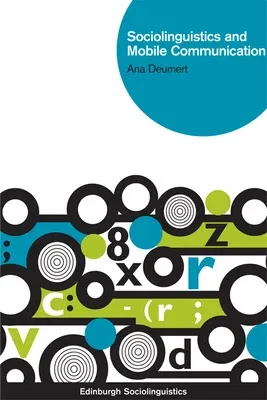Ana Deumert
(Author)Sociolinguistics and Mobile CommunicationPaperback, 11 December 2014

Qty
1
Turbo
Ships in 2 - 3 days
In Stock
Free Delivery
Cash on Delivery
15 Days
Free Returns
Secure Checkout

Part of Series
Edinburgh Sociolinguistics
Part of Series
Edinburgh Sociolinguistics Eup
Print Length
216 pages
Language
English
Publisher
Edinburgh University Press
Date Published
11 Dec 2014
ISBN-10
0748655743
ISBN-13
9780748655748
Description
Product Details
Author:
Book Format:
Paperback
Country of Origin:
GB
Date Published:
11 December 2014
Dimensions:
24.89 x
15.49 x
1.52 cm
Genre:
Sociological
ISBN-10:
0748655743
ISBN-13:
9780748655748
Language:
English
Pages:
216
Publisher:
Weight:
385.55 gm